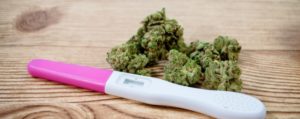
By ROBERTA CANNON,
HYANNIS – Pot, weed, cannabis, are just three of the hundreds of names used to describe marijuana.
But no matter what you call it, there are potential health risks for your newborn, according to theAmerican College of Obstetricians and Gynecologists (ACOG). If a pregnant woman uses marijuana, it can cause impairments in the growth and development of the brain or central nervous system in her unborn baby.
And theAmerican Academy of Pediatrics has stated in their policy statement, Breastfeeding and the Use of Human Milk, that cannabis use is contraindicated for breastfeeding mothers. Their reason is their concern for the long-term effects on the child’s neurodevelopment that includes the ability to learn, express emotions and behavior.
“The active ingredient in marijuana is tetrahydrocannabinol (THC) and it is stored in body fat,” said Teresa Reid, MD, medical director of the newborn nursery at Cape Cod Hospital. “The baby’s central nervous system in the brain is made up of mostly fat. When a mother uses marijuana the THC stores up in the fat of the baby’s brain and can stay there for months.”
Dr. Reid is a member of a task force at Tufts Medical Center in Boston that develops policies regarding marijuana exposure in the newborn. They include teaching mothers about the effects of marijuana on their babies and offers supportive guidelines to help the mother stop marijuana use.
How It Affects Breast Milk
According to the Centers for Disease Control and Prevention (CDC), research shows that marijuana use during pregnancy may make it hard for a child to pay attention or learn. These issues may only become noticeable as the child grows, according to the CDC.
Research has shown that moderate amounts of THC can pass through the breast milk to the baby according to the National Institute of Drug Abuse (NIDA). Researchers do not yet know how the drug affects infants’ brains, according to NIDA.
“When a mother is smoking marijuana, the THC is stored in the breast tissue, which is composed of fat,” said Dr. Reid. “The chemical leaks into the breast milk and it is unknown how long it remains in the milk. Even if the mother pumps the breast milk and throws it away, it really becomes counterproductive because she will not be able to pump long enough to clear it from her breast tissue.”
There are few studies on the prevalence of prenatal exposure to marijuana, according to the National Center for Biotechnology Information (NCBI), part of the National Institutes of Health in Bethesda, MD. Information derived from the Ottawa Prenatal Prospective Study (OPPS) found that prenatal marijuana exposure was “highly correlated with an increase in exaggerated startles and tremors, as well as with a significant reduction in habituation to light at the neonatal stage.”
“The bottom line is that marijuana, in any form, does affect the baby in utero and afterwards, although we don’t know how much,” said Dr. Reid.
Hospitals have been required to report mothers who disclose illicit drug use during pregnancy to the Massachusetts Department of Public Health (DPH) and initiate a social work consultation to assist in filing a report of abuse and neglect (51A) to theMassachusetts Department of Children and Families (DCF).How those requirements will affect reporting is unknown at this time since marijuana has become legalized, according to Dr. Reid.

No comments:
Post a Comment